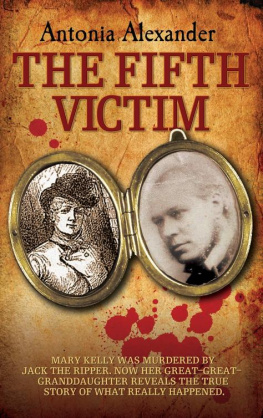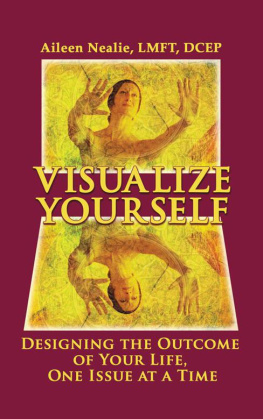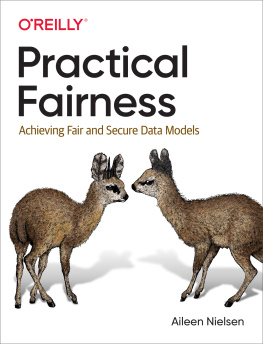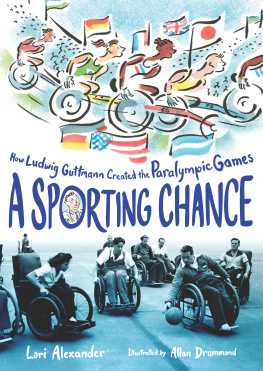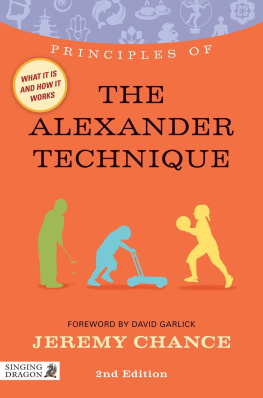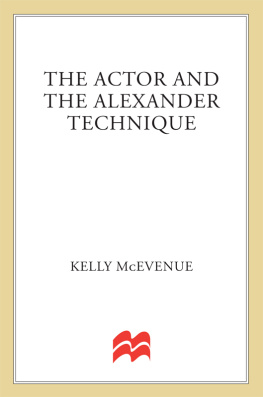Aileen Kelly - The Discovery of Chance: the Life and Thought of Alexander Herzen
Here you can read online Aileen Kelly - The Discovery of Chance: the Life and Thought of Alexander Herzen full text of the book (entire story) in english for free. Download pdf and epub, get meaning, cover and reviews about this ebook. year: 2016, publisher: Harvard University Press, genre: Science. Description of the work, (preface) as well as reviews are available. Best literature library LitArk.com created for fans of good reading and offers a wide selection of genres:
Romance novel
Science fiction
Adventure
Detective
Science
History
Home and family
Prose
Art
Politics
Computer
Non-fiction
Religion
Business
Children
Humor
Choose a favorite category and find really read worthwhile books. Enjoy immersion in the world of imagination, feel the emotions of the characters or learn something new for yourself, make an fascinating discovery.

- Book:The Discovery of Chance: the Life and Thought of Alexander Herzen
- Author:
- Publisher:Harvard University Press
- Genre:
- Year:2016
- Rating:5 / 5
- Favourites:Add to favourites
- Your mark:
- 100
- 1
- 2
- 3
- 4
- 5
The Discovery of Chance: the Life and Thought of Alexander Herzen: summary, description and annotation
We offer to read an annotation, description, summary or preface (depends on what the author of the book "The Discovery of Chance: the Life and Thought of Alexander Herzen" wrote himself). If you haven't found the necessary information about the book — write in the comments, we will try to find it.
Aileen Kelly: author's other books
Who wrote The Discovery of Chance: the Life and Thought of Alexander Herzen? Find out the surname, the name of the author of the book and a list of all author's works by series.
The Discovery of Chance: the Life and Thought of Alexander Herzen — read online for free the complete book (whole text) full work
Below is the text of the book, divided by pages. System saving the place of the last page read, allows you to conveniently read the book "The Discovery of Chance: the Life and Thought of Alexander Herzen" online for free, without having to search again every time where you left off. Put a bookmark, and you can go to the page where you finished reading at any time.
Font size:
Interval:
Bookmark:
The Discovery of Chance

The Life and Thought of Alexander Herzen
Aileen M. Kelly

CAMBRIDGE, MASSACHUSETTS LONDON, ENGLAND
2016
Copyright 2016 by The President and Fellows of Harvard College
All rights reserved
Jacket credit: Russian photographer (19th century)/Private Collection/ Look and Learn/Elgar Collection/Bridgeman Images
Jacket design: Annamarie McMahon Why
978-0-674-73711-2 (alk. paper)
978-0-674-96941-4 (EPUB)
978-0-674-96942-1 (MOBI)
The Library of Congress has cataloged the printed edition as follows:
Names: Kelly, Aileen, author.
Title: The discovery of chance : the life and thought of Alexander Herzen /
Aileen M. Kelly.
Description: Cambridge, Massachusetts : Harvard University Press, 2016. |
Includes bibliographical references and index.
Identifiers: LCCN 2015038959
Subjects: LCSH: Herzen, Aleksandr, 18121870. |
IntellectualsRussiaBiography. | RussiaIntellectual life18011917.
Classification: LCC DK209.6.H4 K445 2016 | DDC 947/.07092dc23 LC record available at http://lccn.loc.gov/2015038959
To the memory of Isaiah Berlin
, ,
,
, .
O, how many and marvelous are the discoveries
prepared for us by the spirit of enlightenment,
by Experiment, the child of painful error,
by Genius, the friend of paradox,
and by the divine inventor, Chance.
PUSHKIN
I am greatly indebted to the Leverhulme Foundation for the award of a Major Research Fellowship, which gave me the necessary freedom to study fully the scientific background to Herzens thought while I was reconsidering and reorganizing the contents and intellectual structure of the whole project. Without this support, the book could never have taken its present form.
The initial inspiration for this book and its early evolution would have been impossible without the example and influence of Isaiah Berlin, whose unique empathy and generosity of spirit were always extended with equal prodigality to past thinkers who resisted simple labeling and to the students, even those like me with no claim on his time, who were fortunate enough to cross his path.
My work has benefited hugely from Professor John Campbells cultural horizonsseemingly boundlesswhich embrace equally the sciences and the arts, and from his encyclopedic memory in all the languages of the project and others around its edges, together with his permanent skepticism about the virtues of grand historical theories. He has added unexpected insights in many places, and his ordered mind has had restraining and generally constructive effects on any of my tendencies toward disorder. His sometimes indelicate but never inappropriate humor has also been invaluable. Finally, I believe the book has gained from one repeated piece of his advice, which I have always tried to follow: However serious the work is, dont forget to have fun.
Tracing my interest in Herzen back through a prior interest in Russian to the origins of both interests, I should acknowledge the earliest help I received: from the various nuns in my convent boarding school who never thought to inspect what the students brought with them to the numerous services they were required to attend. This made it possible for me to write lists of Russian vocabulary on sheets of light airmail paper, insert them between the pages of my prayer book, and then study the book intensivelyone might almost say religiouslyduring the services. It would have been a new kind of challenge to my undergraduate teachers a few years later, to handle a student who had arrived with an excellent Russian vocabulary but almost no grammar.
Although I was literally immersed in the Russian milieu during my two years as a research student in Leningrad, my true immersion in the best of Russian culture of all periods came from two individuals who became firm friends with me there at that time: Valentina Dmitrievna and Anatolii Lvovich Guterman. I owe more than I can say to them both, and regret that this book came far too late for me to show them the ultimate result of their educational effects and their friendship.
The last months of my efforts in the production of the book have been made much easier by the professional efficiency of my editor, Ian Malcolm, and his enthusiasm for the project. Service well beyond the call of duty comes to mind.
Some of the detailed arguments made in of this book were first presented in two books I had the privilege to publish with Yale University Press. Toward Another Shore: Russian Thinkers between Necessity and Chance was released in 1998 and Views from the Other Shore: Essays on Herzen, Chekhov, and Bakhtin appeared in 1999.
All translations in the present book are mine unless otherwise indicated.
Herzen awaits his readers in the future. Far above the heads of the present crowd, he transmits his thoughts to those who will be able to comprehend them.
L. N. TOLSTOY, DIARY ENTRY OF 12 OCTOBER 1905
HE has been described more than once as a Russian Voltaire. Nietzsche wrote of his readiness to credit such a noble-spirited and tenacious soul with every gift of distinction; Tolstoy declared that he had never met anyone with so rare a combination of scintillating brilliance and depth.
Philosopher, novelist, essayist, publicist, and political agitator, Alexander Ivanovich Herzen was one of the most talented and complex figures of his time. The first socialist in Russian history, he played a crucial role in the assimilation of Western ideas into Russian thought. As a political migr in Europe, he is acknowledged as having single-handedly created Russian public opinion by providing his native country with its first uncensored news organ, smuggled into Russia from his Free Russian Press in London: the celebrated periodical The Bell. In the West, his fame rivaled that of the great Russian novelists who were his contemporaries. An engaged observer of the 1848 revolution in France, he was admired by some of the most eminent members of Europes progressive elite. His friends and collaborators included Garibaldi, Mazzini, Michelet, Louis Blanc, Proudhon, Victor Hugo, and Thomas Carlyle. His political writings, infused with moral passion and a fiery imagination, have all the vitality of the spoken word. His monumental memoirs, the work of an uncommonly perceptive social observer, with their vivid insights into personalities, ideas, and events at turning points in the history of Russia and Europe, are recognized as a literary classic, while as a philosopher he gave early expression to values that became prominent only a century later.
But he left no body of doctrine, and anyone inquiring into the nature of his intellectual legacy is faced with a bewildering variety of interpretations. The outlook and aims of this extraordinarily multifaceted figure continue to be a matter of contention. In his own country Slavophiles and Westernizers, Romantics and realists, moderates and extremists, communists, anarchists, and liberals, have on occasion claimed him as their own, or reviled him as an implacable opponent. Comparisons have been made with Stirner, Nietzsche, Kierkegaard, and Camus, to name only a few.
The official Russian interpretation of Herzen disappeared from circulation after 1991. The three speakers at a very modest conference held in 2010 in the Institute of Philosophy of the Russian Academy of Sciences to mark the 140th anniversary of his death stressed the nontypicality
Next pageFont size:
Interval:
Bookmark:
Similar books «The Discovery of Chance: the Life and Thought of Alexander Herzen»
Look at similar books to The Discovery of Chance: the Life and Thought of Alexander Herzen. We have selected literature similar in name and meaning in the hope of providing readers with more options to find new, interesting, not yet read works.
Discussion, reviews of the book The Discovery of Chance: the Life and Thought of Alexander Herzen and just readers' own opinions. Leave your comments, write what you think about the work, its meaning or the main characters. Specify what exactly you liked and what you didn't like, and why you think so.


